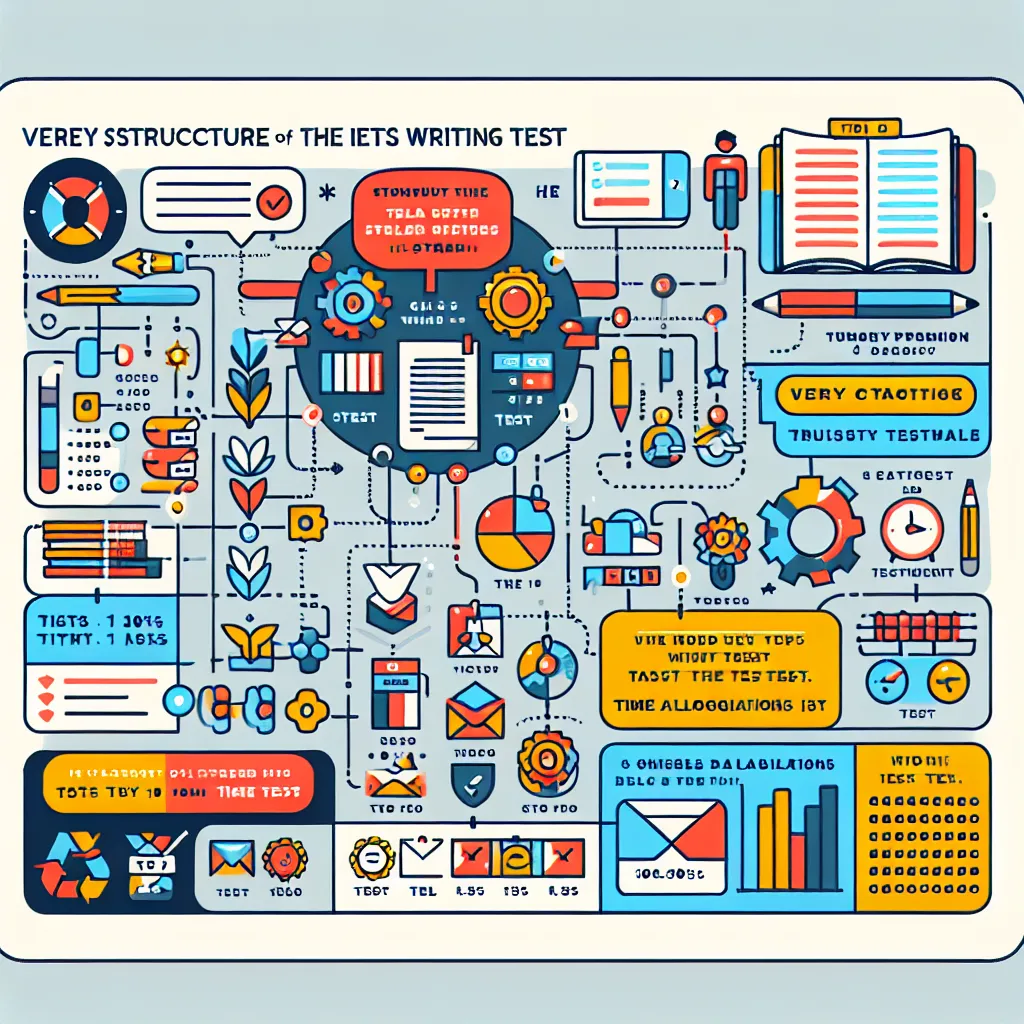Are you preparing for the IELTS Writing test and feeling overwhelmed by the time constraints? You’re not alone. Many test-takers struggle with time management during this crucial part of the exam. In this comprehensive guide, we’ll explore effective strategies to help you manage your time efficiently and maximize your score in the IELTS Writing test.
Understanding the IELTS Writing Test Structure
Before diving into time management strategies, it’s essential to understand the structure of the IELTS Writing test. The test consists of two tasks:
- Task 1 (20 minutes): Describe visual information (graph, table, chart, or diagram)
- Task 2 (40 minutes): Write an essay in response to a point of view, argument, or problem
You have a total of 60 minutes to complete both tasks, and it’s crucial to allocate your time wisely between them.

Why Time Management is Critical in IELTS Writing
Effective time management in the IELTS Writing test is crucial for several reasons:
- Ensures completion of both tasks
- Allows time for planning and proofreading
- Helps maintain focus and reduce stress
- Enables you to showcase your writing skills fully
By mastering time management, you’ll be better equipped to demonstrate your true writing abilities and achieve your desired score.
Strategies for Managing Time in IELTS Writing
1. Practice with Timed Mock Tests
One of the most effective ways to improve your time management skills is through regular practice with timed mock tests. This will help you:
- Familiarize yourself with the test format
- Develop a sense of pacing
- Identify areas where you tend to spend too much time
Tip: Use official IELTS practice materials or reputable online resources for the most accurate simulation of the actual test.
2. Allocate Time Wisely Between Tasks
Given the different weights of Task 1 and Task 2 in your overall score, it’s crucial to allocate your time appropriately:
- Task 1: 20 minutes
- Task 2: 40 minutes
Stick to this time allocation strictly, even if you feel you need more time for Task 1. Remember, Task 2 carries more weight in your overall score.
3. Use a Structured Approach for Each Task
Develop a systematic approach for each task to ensure you cover all necessary elements within the given time:
Task 1 (20 minutes):
- 2-3 minutes: Analyze the visual information
- 2-3 minutes: Plan your response
- 12-13 minutes: Write your answer
- 2-3 minutes: Review and edit
Task 2 (40 minutes):
- 5 minutes: Analyze the question and plan your essay
- 30 minutes: Write your essay
- 5 minutes: Review and edit
4. Improve Your Writing Speed
To manage time effectively, you need to write quickly without sacrificing quality. Here are some tips to improve your writing speed:
- Practice typing if you’re taking the computer-delivered test
- Develop your handwriting speed for the paper-based test
- Use simple, clear language instead of complex vocabulary
- Focus on expressing your ideas concisely
5. Plan Before You Write
Spending a few minutes planning your response can actually save you time in the long run. A well-structured plan helps you:
- Organize your thoughts
- Ensure you address all parts of the question
- Write more efficiently without pausing to think about what comes next
6. Use Time-Saving Techniques
Employ these techniques to save valuable time during the test:
- Use abbreviations and symbols in your planning stage
- Write in paragraphs to organize your ideas clearly
- Use transition words to connect your ideas smoothly
- Avoid spending too much time on a single sentence or idea
7. Monitor Your Progress
Keep an eye on the clock throughout the test, but avoid checking it too frequently as this can increase stress. Set mental checkpoints for yourself, such as:
- Task 1: Halfway point at 10 minutes
- Task 2: Quarters at 10, 20, and 30 minutes
If you find yourself falling behind, adjust your strategy accordingly.
Common Time Management Mistakes to Avoid
Be aware of these common pitfalls that can derail your time management efforts:
- Spending too much time on Task 1
- Over-planning and under-writing
- Trying to write a “perfect” essay
- Neglecting to leave time for proofreading
- Panicking if you fall behind schedule
Next Steps: Putting Your Time Management Skills into Practice
Now that you’ve learned these strategies, it’s time to put them into practice:
- Set a regular study schedule to practice timed writing tasks
- Use a stopwatch to time yourself during practice sessions
- Gradually increase your writing speed while maintaining quality
- Seek feedback from a teacher or tutor on your time management skills
- Take full-length practice tests to simulate exam conditions
Remember, effective time management in the IELTS Writing test is a skill that can be developed with consistent practice and the right strategies. By following the tips outlined in this guide, you’ll be well-prepared to tackle the Writing test with confidence and achieve your best possible score.
Are you ready to master time management in your IELTS Writing test? Start implementing these strategies today, and watch your performance improve! Share your experiences or ask questions in the comments below, and don’t forget to check out our other IELTS preparation resources for more expert advice.